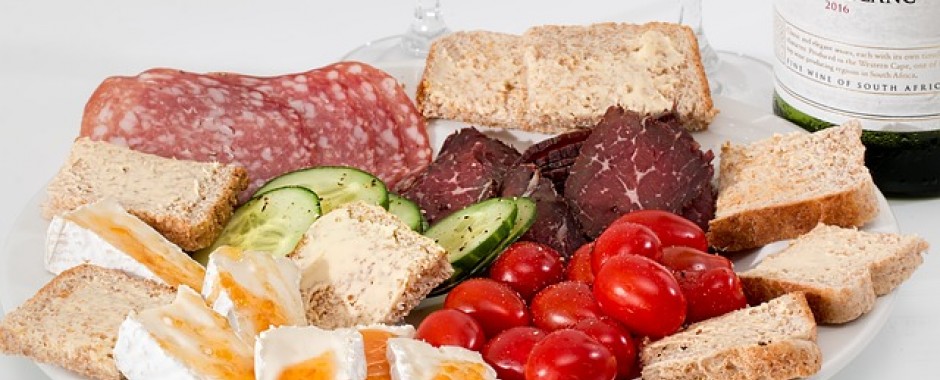Are You Eating Enough Protein?

By: Tara Pierce, M.H.
Protein is one of three macronutrients (protein, fat, carbohydrates) that the body needs for survival. They are called ‘macro’ due to the large quantities in which they need to be consumed. Protein is the building block of all our cells and it forms the foundation for our heart, lungs and DNA. It is also one of the most important sources of fuel for the body, replenishing muscles and driving biological processes such as cell growth and metabolism. Protein is composed of amino acids which are organic compounds made of carbon, hydrogen, nitrogen, oxygen or sulfur.
There are 9 essential amino acids that the body cannot produce on its own, making it necessary for us to obtain them from food sources. Foods that contain all 9 of these amino acids are called complete, ideal or high-quality proteins. They are found in animal products such as meat and dairy as well as vegetarian sources like quinoa, hemp seeds, chia seeds and soy. Most plant based protein sources are not complete, therefore, they need to be combined or eaten in a wide variety to obtain all 9 essentials needed by the body. Nut butter with whole grain bread, rice and beans, and lentils with vegetables are some popular protein combos. However, they do not need to be eaten together to be beneficial.
Nut butter with whole grain bread, rice and beans, and lentils with vegetables are some popular protein combos.
The average adult needs to consume protein equal to 1/2 their body weight in grams. This means if you weigh 150 lbs. you would want to consume 75 grams of high-quality protein per day. If you are trying to lose weight, have increased or intensified your exercise, are lifting weights, or are over 40, you will need even more due to physical stress and energy output. In these cases, if protein is not increased, it can be taken from muscle building and repair as well as other biological processes. This can negatively affect your metabolism and hormones, making it impossible to reach your goals.
If you are not getting enough protein you may also notice other symptoms such as; weakened immune, slow wound healing, changes in skin and hair, swelling (edema), bloating, poor concentration, trouble learning, brain fog, rash, fatigue, irritability, mood swings, muscle loss, failure to gain weight and grow, muscle, bone and joint pain, blood sugar changes leading to diabetes, as well as weakened heart and respiratory system.
The quality of our protein, as with everything else we eat, matters. With so much of it needed by our bodies every day to thrive, finding the cleanest sources is vital. Organic produce, whole grains, nuts, seeds and legumes give our bodies high quality nutrition without the toxic baggage of herbicides, pesticides or GMO’s. Free range and grass fed animal products ensure complete proteins without the added hormones, antibiotics, chemicals and fillers that are prevalent in commercially raised animals. Raw and organic dairy products that contain the natural balance of fats and sugars while keeping the active enzymes and pro-biotic cultures intact can greatly benefit your digestion and elimination while providing you with easily digested protein.
Some of the foods that pack the most grams of protein per serving are;
Bone broth protein (draxe.com or visit your local health food store) – 1 serving: 20 grams
High-quality whey protein-1 serving: approximately 20 grams (varies slightly by brand)
Vegan protein powder (such as Vega Sport or Sunwarrior) – 1 serving: 15-20 grams
Greek yogurt – 7 ounces: 20 grams
 Grass-fed organic beef – 3 ounces: 19 grams
Grass-fed organic beef – 3 ounces: 19 grams
Organic lentils – 1 cup: 18 grams
Wild caught fish (salmon, tuna, mackerel) – 3 ounces salmon: 17 grams
Organic chicken – 1 chicken breast: 16 grams
Pumpkin seeds – 1 ounce: 9 grams
Raw milk – 1 cup: 8 grams
Beans – 1/2 cup: 7-10 grams
Free range eggs – 1 large: 7 grams
Nuts (cashews, almonds, peanuts) – 1 ounce: approx. 6 grams
If you feel that your diet is leaving you short on protein, try adding more protein rich foods from the list above or supplement with a high quality protein powder 1-3 times a day. These powders can easily be added to smoothies or milk of your choice. My favorite “indulgence”, especially in the cold winter months, is a hot cup of chocolate Bone Broth Protein with organic cream. As a chocolate lover I may be biased, but in my opinion, there is no tastier way to increase your daily protein intake.
About the Author:
Tara Pierce is a Master Herbalist Graduate of the School of Natural Healing. She offers private health consultations and teaches nutrition classes to homeschoolers and truth seekers of all ages.
©2017. Re-posted with permission from Herbal Legacy. This article can be found at:http://herballegacy.com/Protein.pdf







Comments
Add new comment